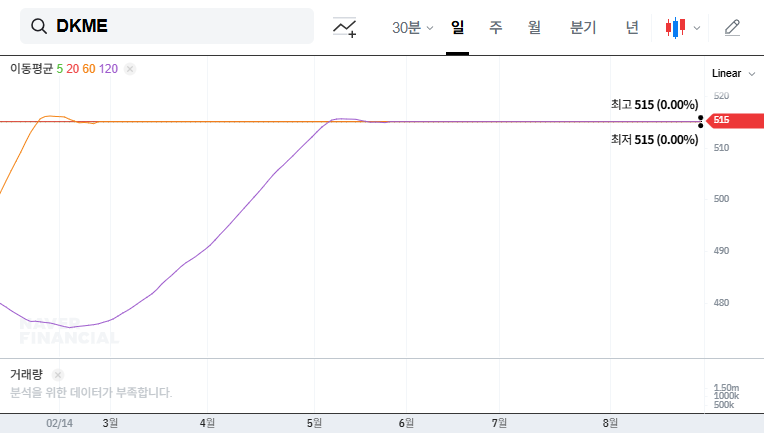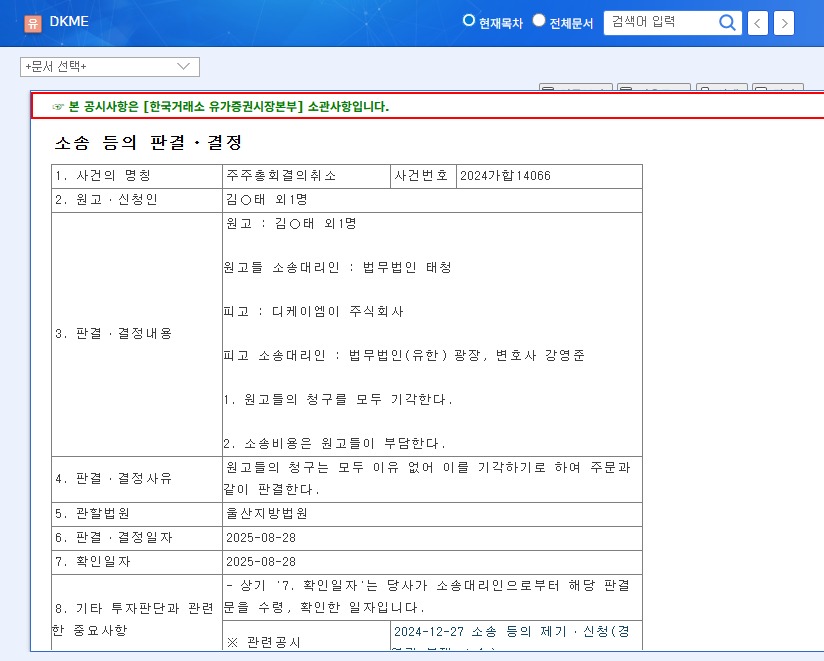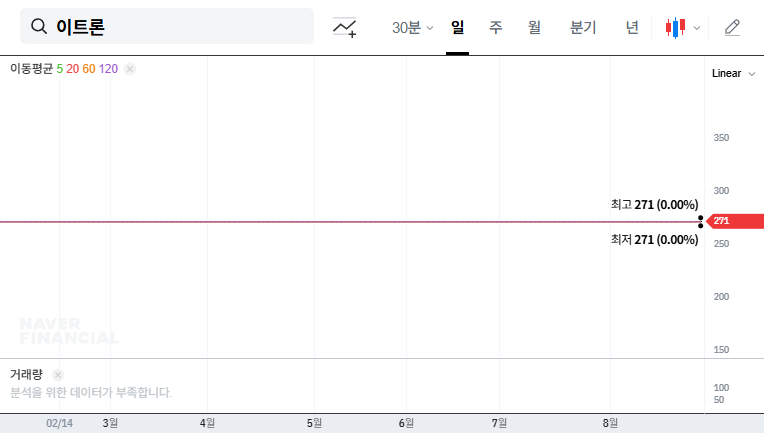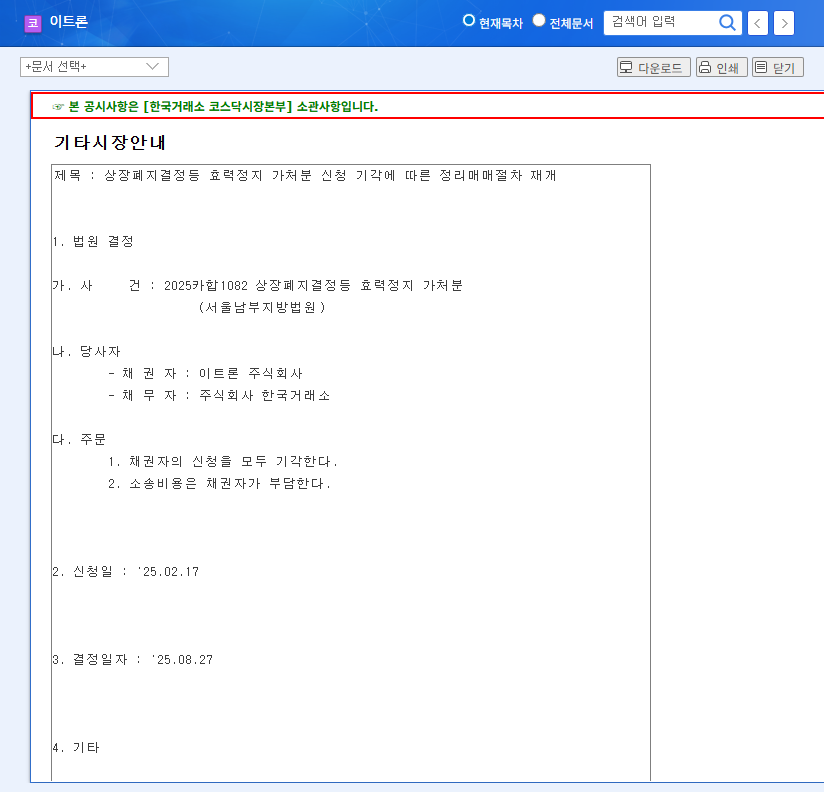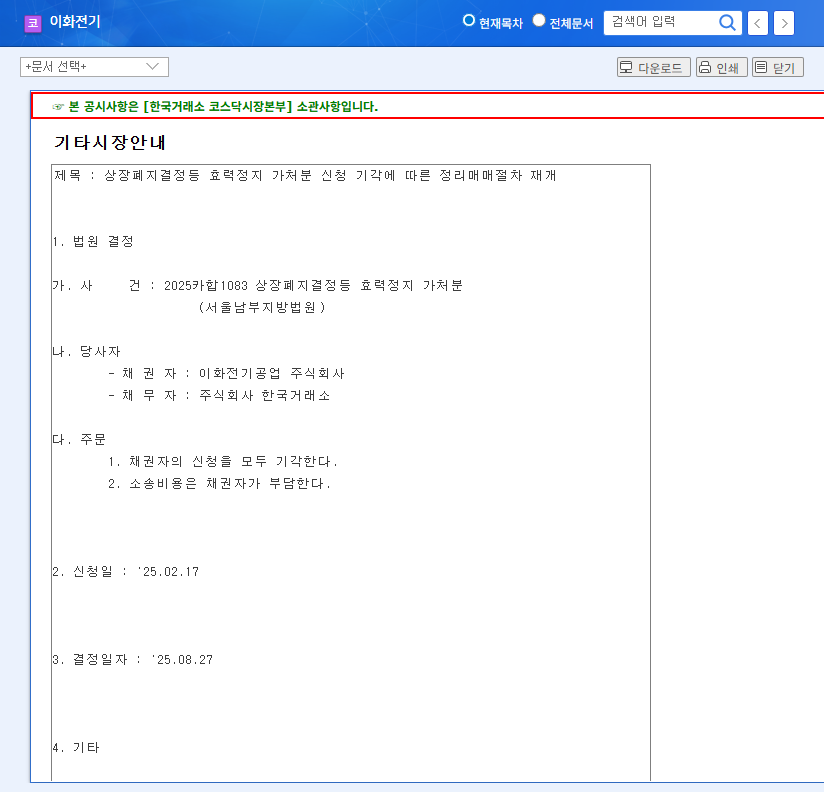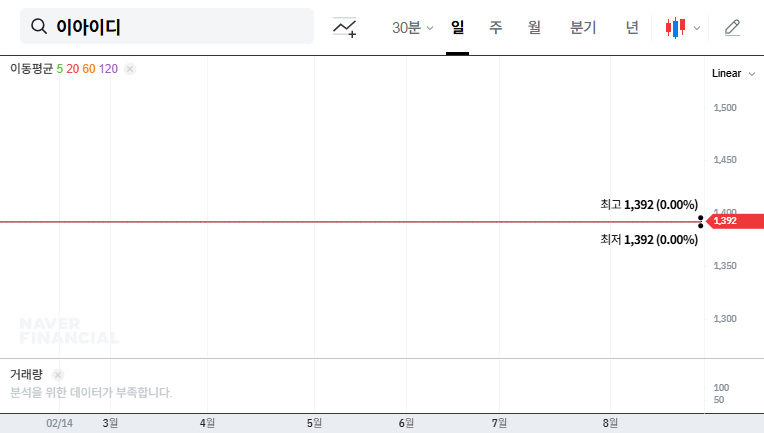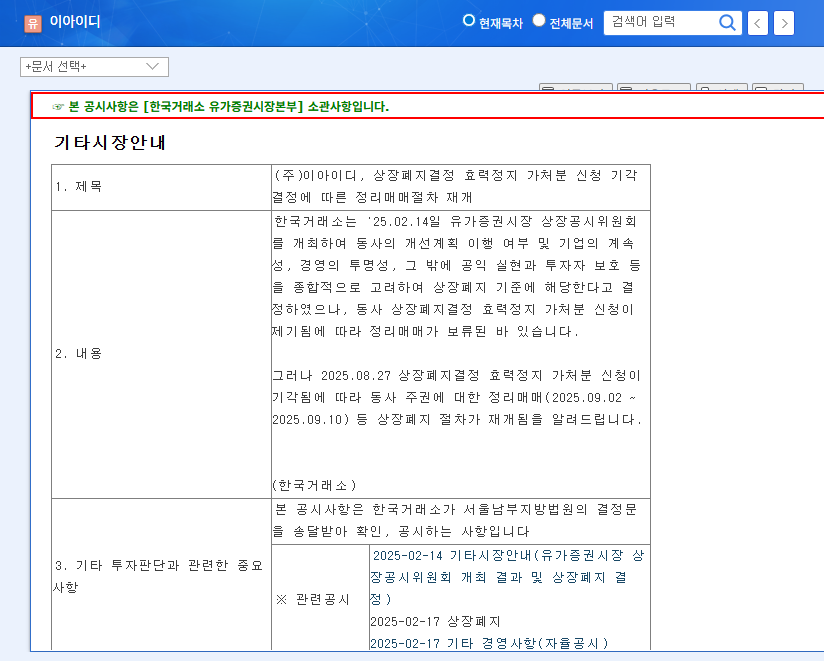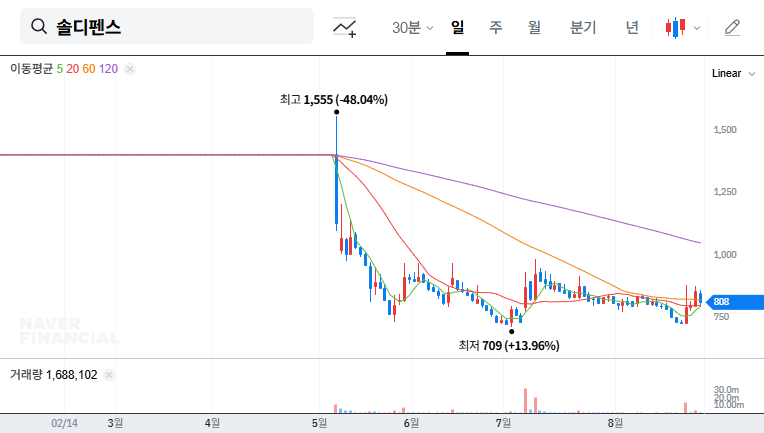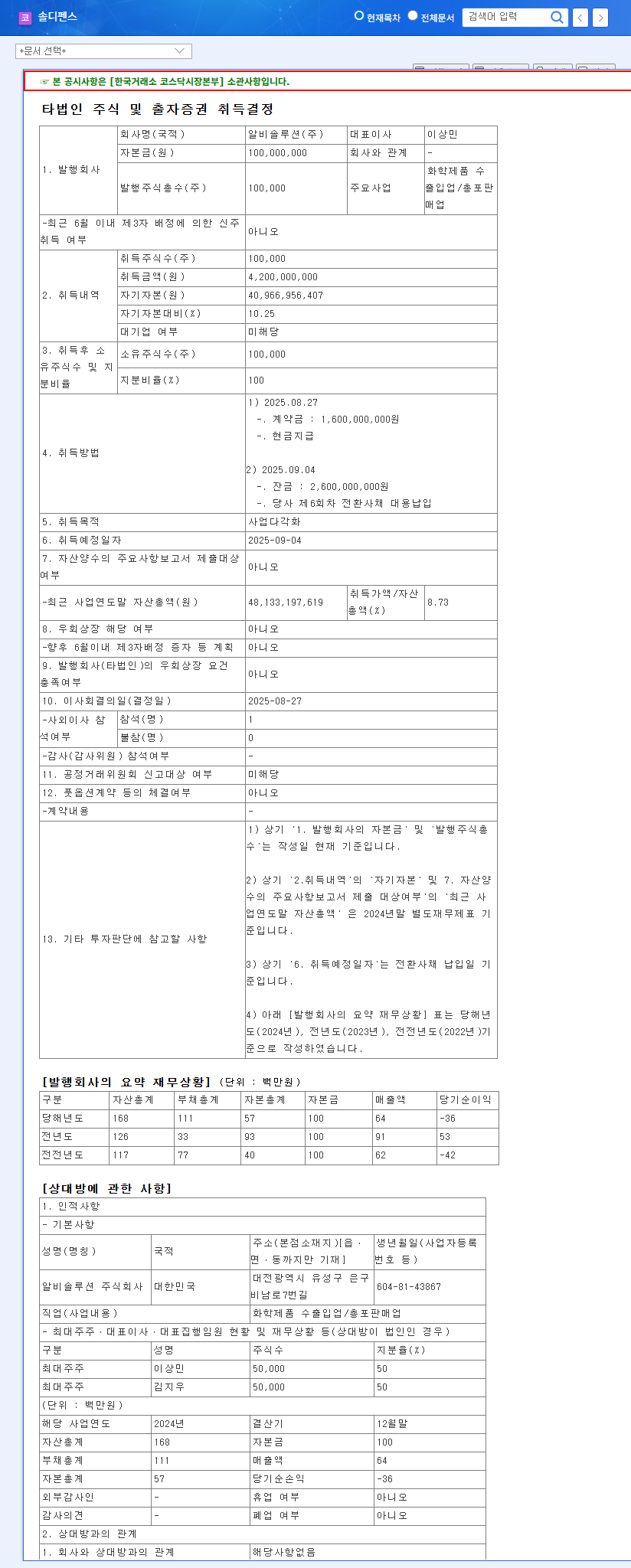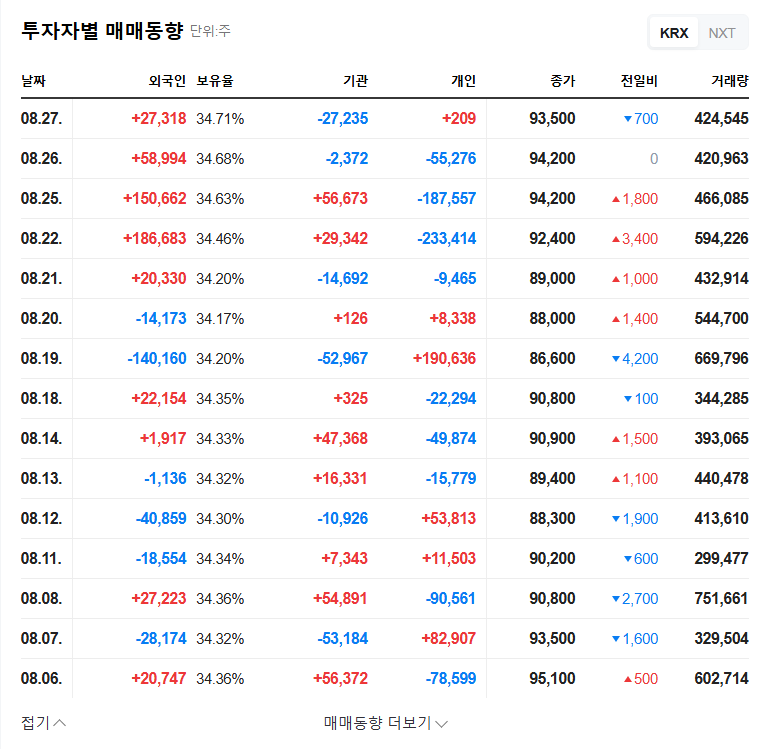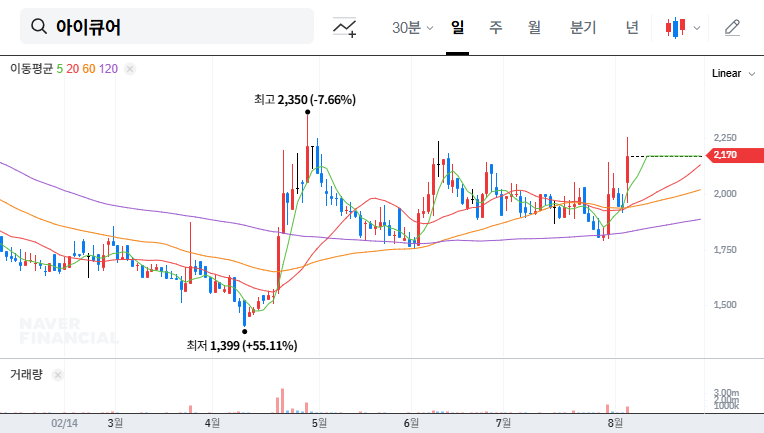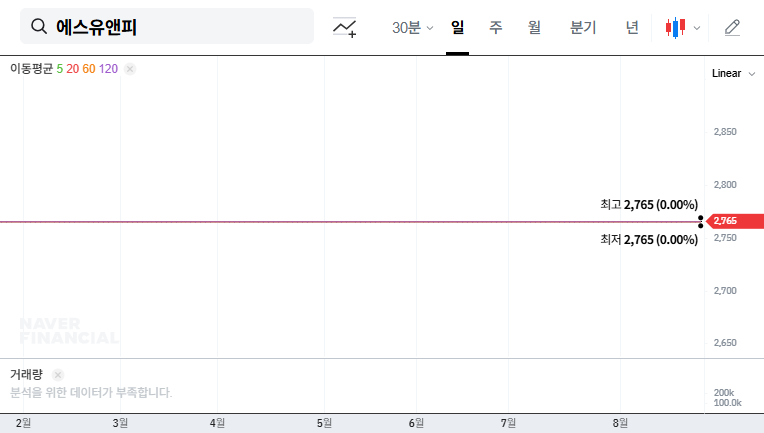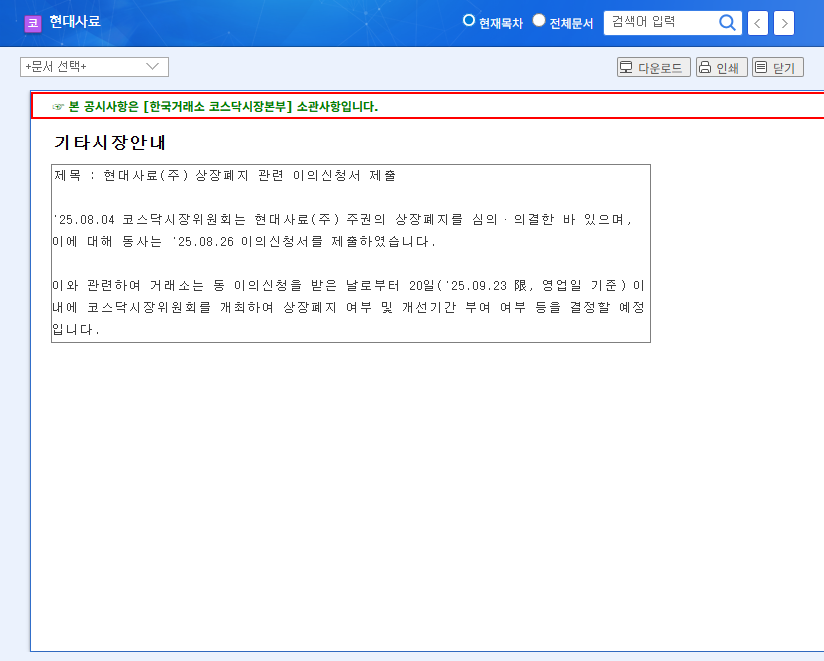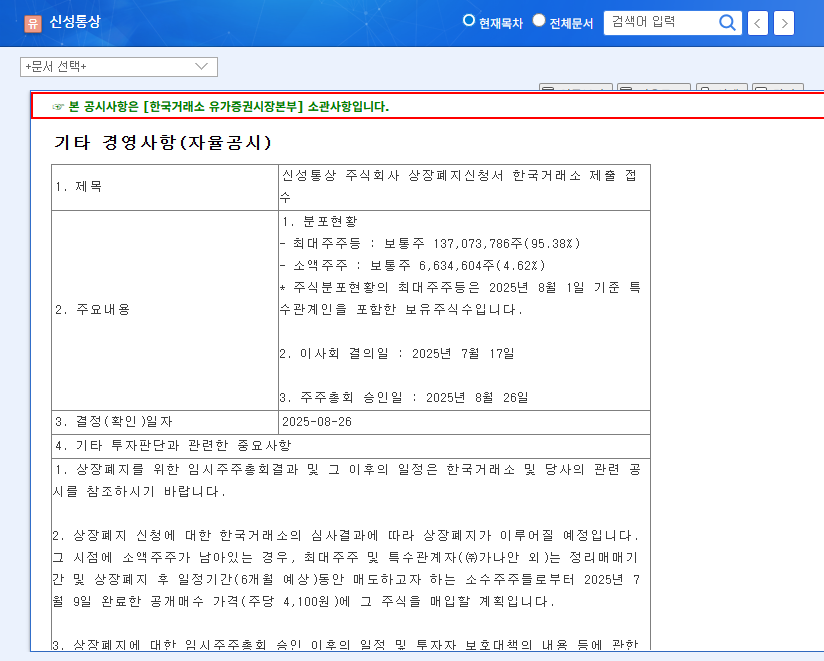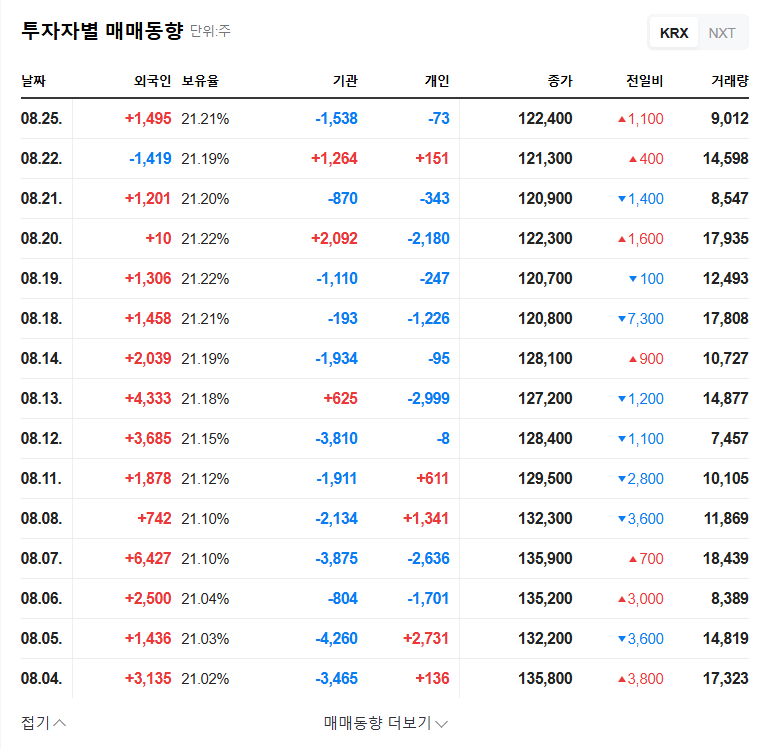1. What Happened? : JEIL M&S’s Shocking Semi-Annual Report
JEIL M&S’s 2025 semi-annual report revealed a 35.6% decrease in sales, a net loss of KRW 26 billion, and complete capital impairment. The external auditor issued a disclaimer of opinion on the company’s ability to continue as a going concern, raising serious doubts about its survival.
2. Why Did This Happen? : Analyzing the Reasons Behind the Deteriorating Performance
A combination of factors contributed to the decline, including a sharp drop in sales in Europe, high dependence on specific customers, increased inventory valuation losses, and rising financial costs. Despite growth in the secondary battery market, internal management and financial issues are identified as the main culprits.
3. What’s Next? : Future Outlook and Investment Implications
In the short term, a sharp drop in stock price, potential trading suspension, credit rating downgrade, and difficulties in raising capital are expected. The long-term outlook remains highly uncertain, with the possibility of rehabilitation proceedings or even bankruptcy in a worst-case scenario.
4. What Should Investors Do? : Investment Strategy Recommendations
Do not invest (Sell/Hold). Currently, JEIL M&S is not a suitable investment target. Investors holding the stock should consider immediate reduction or complete liquidation of their positions. Investing in a company whose very survival is questionable could lead to significant losses.
Frequently Asked Questions
Is JEIL M&S facing delisting?
The auditor’s disclaimer of opinion is grounds for delisting. Considering the current financial situation and the low likelihood of improvement, delisting is a real possibility.
When will it be a good time to invest in JEIL M&S?
It’s difficult to predict at this point. The company needs to show a clear recovery, including resolving the capital impairment and improving profitability, before investment can be considered.
Should I cut my losses and sell JEIL M&S stock now?
Yes, investing in JEIL M&S currently carries extremely high risks. Investors holding the stock are advised to immediately reduce or liquidate their positions.
